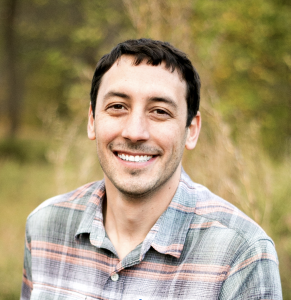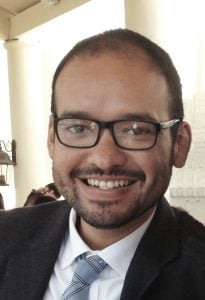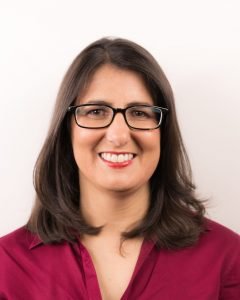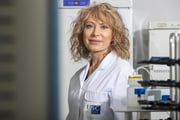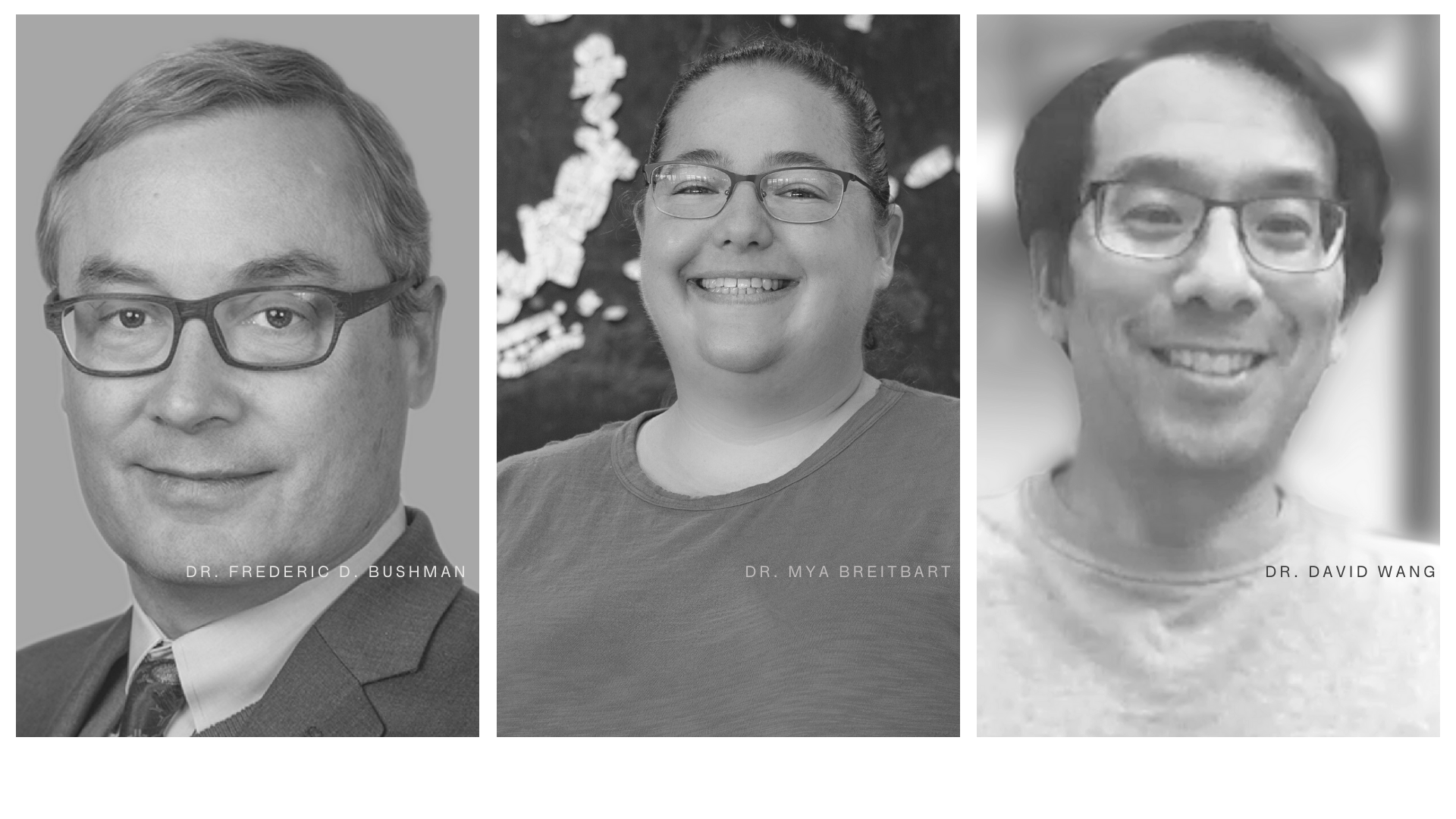Hispanic Heritage Month at Keystone Symposia
As we commemorate National Hispanic Heritage Month, Keystone Symposia celebrates the many inspiring Hispanic/Latinx scientists who contribute to our mission to accelerate life science discovery. Scientific thought-leaders from Hispanic/Latinx backgrounds are critical members of the Keystone Symposia community, on our Scientific Advisory Board for conference development, as speakers sharing their cutting-edge research at our meetings, and as meeting attendees, poster presenters and scholarship awardees aspiring to launch their careers.
In addition, the Hispanic/Latinx community comprises a significant portion of our Keystone Symposia Fellows program—a unique professional advancement opportunity designed to enhance confidence, leadership skills, networking opportunities, and visibility for early-career scientists from underrepresented backgrounds in the biological and biomedical sciences. In honor of National Hispanic Heritage Month, we are showcasing the 27 Hispanic/Latinx Fellows and invite those from Hispanic/Latinx backgrounds to apply for next year’s class. Please help us spread the word among your professional networks!
#HispanicHeritageMonth
Find out more & apply to become a Keystone Symposia Fellow HERE
Application Deadline: October 15, 2021
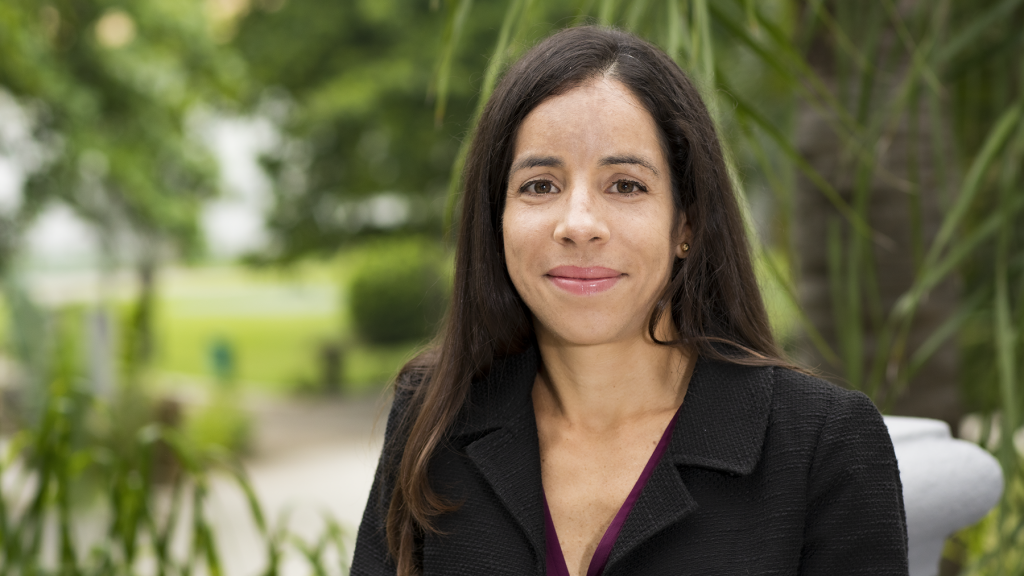
Zaida G. Ramirez Ortiz (class of 2020/21)
Assistant Professor, Department of Medicine at the University of Massachusetts Medical School
I study Immunology with a focus on autoimmune diseases. 1.5 million Americans and 5 million people worldwide suffer with a form of lupus. Approximately, 70% of lupus cases progress to systemic disease referred to as systemic lupus erythematosus (SLE). There is no known cause or cure for lupus, but several studies have shown that patients with SLE have increased levels of circulating ACs, indicating a failure in the clearance of dying cells. Therefore, efficient detection and clearance of apoptotic cells (ACs), a process termed efferocytosis, is critical for control of tissue homeostasis and the resolution of inflammation. Our current lack of understanding about how phagocytes mediate capture and engulfment of ACs and the signaling pathways initiated by apoptotic debris to prevent loss of tolerance and autoimmunity remain a critical barrier to progress in the field of understanding autoimmune disease pathogenesis. What motivated me to pursue this area is to understand what cause this break in immune tolerance resulting in autoimmunity. Furthermore, the pressing need exists for the development of more specific and less toxic drugs for the treatment of SLE and other autoimmune diseases given that very few drugs have been approved specifically for patients with lupus in the last 50 years.
When I transitioned to an independent position, I thought I needed to be independent from others but that was far from the truth. You need mentors-- people in your corner that will guide you and help you be successful. Being a KS fellow, I found that my fellow colleagues became mentors- especially during this unprecedented pandemic time.
Being part of Keystone Symposia as a fellow you become part of a larger family. Fellows from prior years are there to provide advice and you want to celebrate their good news with them. I hope that I can do the same for future fellows!
David J. Gonzalez (class of 2020/21)
Associate Professor, School of Medicine and Skaggs School of Pharmacy, UC San Diego
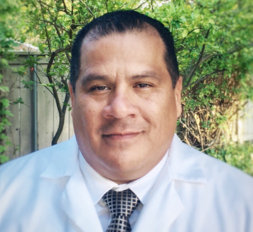 The last 100 years of microbiology research have clearly established that symbiotic and pathogenic microbes colonizing humans have the ability to impact health, disease, and drug action (Pharmacology and Pharmacy). A next step in studying the complex interaction between host and microbe is to "directly" define the molecular factors that govern biological function (i.e. proteins, metabolites, posttranslational modifications) and delineate their associated mechanisms of action. Towards this goal, the Gonzalez laboratory utilizes a systems scale to single target approach to study bacterial pathogenesis, host responses to infection, and the human microbiome. At its core, the laboratory develops and applies multiplexing quantitative proteomics tools to simultaneously track thousands of protein dynamics and associated post-translational modifications in an accurate and high throughput fashion. We then interface microbiology techniques to characterize important factors identified during these interactions. When appropriate, translational studies of therapeutic value are undertaken in tissue culture, murine models, and by the analysis of human biospecimens. This information is then used to design novel strategies for the detection or treatment of microbial-driven infectious diseases in humans.
The last 100 years of microbiology research have clearly established that symbiotic and pathogenic microbes colonizing humans have the ability to impact health, disease, and drug action (Pharmacology and Pharmacy). A next step in studying the complex interaction between host and microbe is to "directly" define the molecular factors that govern biological function (i.e. proteins, metabolites, posttranslational modifications) and delineate their associated mechanisms of action. Towards this goal, the Gonzalez laboratory utilizes a systems scale to single target approach to study bacterial pathogenesis, host responses to infection, and the human microbiome. At its core, the laboratory develops and applies multiplexing quantitative proteomics tools to simultaneously track thousands of protein dynamics and associated post-translational modifications in an accurate and high throughput fashion. We then interface microbiology techniques to characterize important factors identified during these interactions. When appropriate, translational studies of therapeutic value are undertaken in tissue culture, murine models, and by the analysis of human biospecimens. This information is then used to design novel strategies for the detection or treatment of microbial-driven infectious diseases in humans.Martín M. Riccomagno (class of 2020/21)
Assistant Professor, Molecular, Cell & Systems Bio, UC Riverside
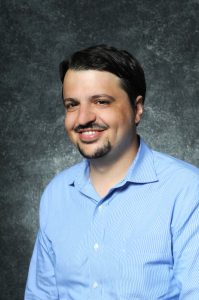 To form the right connections neurons must navigate long distances, guided by attractive and repulsive signals. These ‘guidance cues’ act like streetlights and street signs, and tell the developing neurons where to go to reach their final destinations. Just like when we are driving our cars, neurons encounter multiple signals along the road. While a number of these neuronal guidance signals have been identified, we still don’t understand how multiple attractive and repulsive cues are interpreted inside the developing neuron. Understanding how these cues are integrated and interpreted inside the cell to trigger a diverse array of developmental events is of critical importance if we are to understand the formation, function and malfunction of the human nervous system. We are investigating how a family of intracellular proteins participates in the establishment of brain circuits. These proteins (Cas family) have the potential to interpret and integrate the multiple signals that neurons receive.
To form the right connections neurons must navigate long distances, guided by attractive and repulsive signals. These ‘guidance cues’ act like streetlights and street signs, and tell the developing neurons where to go to reach their final destinations. Just like when we are driving our cars, neurons encounter multiple signals along the road. While a number of these neuronal guidance signals have been identified, we still don’t understand how multiple attractive and repulsive cues are interpreted inside the developing neuron. Understanding how these cues are integrated and interpreted inside the cell to trigger a diverse array of developmental events is of critical importance if we are to understand the formation, function and malfunction of the human nervous system. We are investigating how a family of intracellular proteins participates in the establishment of brain circuits. These proteins (Cas family) have the potential to interpret and integrate the multiple signals that neurons receive.Ramon J. Whitson (class of 2020/21)
Principal Scientist II, Genomics Institute, Novartis Research Foundation, GNF
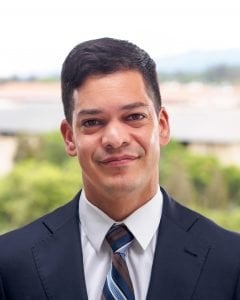 Dr. Whitson received his B.S. in Biology at California State University Chico. In his Ph.D. studies at the University of Colorado Denver, he identified anti-tumor signaling events occurring downstream of vitamin D. His work discovered that the TGFβ family protein, GDF-15, suppresses angiogenesis by inhibiting the pro-angiogenic role of connective tissue growth factor. He received several awards including the Colorado Clinical and Translational Sciences Fellowship. His postdoctoral work at Stanford University uncovered resistance mechanisms involved in tumor resistance in skin cancer. He identified a role for serum response factor and myocardin-related transcription factors in tumor resistance and initiated a drug development effort to target these factors. As an investigator at the Genomics Institute of the Novartis Research Foundation, Dr. Whitson is involved in efforts to characterize transcription factor complexes to identify entry points for drug discovery. Current efforts employ functional genomics, proteomics and structural biology to gain a better understanding of oncogenic transcription factor complexes.
Dr. Whitson received his B.S. in Biology at California State University Chico. In his Ph.D. studies at the University of Colorado Denver, he identified anti-tumor signaling events occurring downstream of vitamin D. His work discovered that the TGFβ family protein, GDF-15, suppresses angiogenesis by inhibiting the pro-angiogenic role of connective tissue growth factor. He received several awards including the Colorado Clinical and Translational Sciences Fellowship. His postdoctoral work at Stanford University uncovered resistance mechanisms involved in tumor resistance in skin cancer. He identified a role for serum response factor and myocardin-related transcription factors in tumor resistance and initiated a drug development effort to target these factors. As an investigator at the Genomics Institute of the Novartis Research Foundation, Dr. Whitson is involved in efforts to characterize transcription factor complexes to identify entry points for drug discovery. Current efforts employ functional genomics, proteomics and structural biology to gain a better understanding of oncogenic transcription factor complexes.Rodrigo Maillard (class of 2018)
Associate Professor of Chemistry, Georgetown University
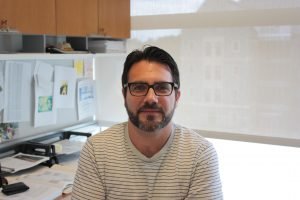 The Maillard laboratory is interested in studying the dynamics, energetics and mechanics of the macromolecular interactions occurring in signaling pathways. To quantify the interactions between small ligands, allosteric protein complexes and membranes, my laboratory uses various approaches including biochemical, bulk biophysical (spectroscopic and calorimetric) and single-molecule methods. In particular, we use novel optical tweezers instrumentation that allows the mechanical manipulation and application of force to individual biological macromolecules in order to study their dynamic behavior and functional mechanisms.
The Maillard laboratory is interested in studying the dynamics, energetics and mechanics of the macromolecular interactions occurring in signaling pathways. To quantify the interactions between small ligands, allosteric protein complexes and membranes, my laboratory uses various approaches including biochemical, bulk biophysical (spectroscopic and calorimetric) and single-molecule methods. In particular, we use novel optical tweezers instrumentation that allows the mechanical manipulation and application of force to individual biological macromolecules in order to study their dynamic behavior and functional mechanisms.Tom is a molecular biologist with a BS in Biology from the University of New Mexico and a PhD in Molecular Biology from the University of Washington. During his studies, Tom utilized the budding yeast, Saccharomyces cerevisiae, to identify and characterize essential molecular components that regulate DNA replication, DNA repair, chromosome segregation, and ribosomal DNA maintenance.
After obtaining his PhD, Tom conducted postdoctoral research at Princeton University as a Burroughs Wellcome research fellow, a New Jersey Commission on Cancer Research fellow, a Ford foundation research fellow, and a Keystone Symposia fellow. His work used S. cerevisiae and Schizosaccharomyces pombe to identify and characterize important molecular pathways mediating genome stability and telomere maintenance in the presence of both endogenous and exogenous stresses.
Tom entered the antibody space in 2019, joining NovaRock Biotherapeutics as a senior scientist and lead for molecular design. He leveraged his expertise to design and develop recombinant expression vectors and proteins to produce monoclonal, bi-specific, and multi-specific antibodies. Tom was also a project lead for one of the company’s therapeutic antibody candidates, centrally involved with the identification of monoclonal antibodies derived from hybridoma screens and the development/implementation of pipeline improvements to streamline the molecular cloning workflows.
In 2021, Tom joined Specifica Inc, a company focused on providing the next generation of human antibody engineering and discovery. Specifica specializes in creating custom antibody libraries to obtain drug-like antibodies straight from selection. As a senior scientist, Tom leverages his prior academic and biotech experience to advance the selection of novel antibodies. He has a central role in expression vector design and construction, yeast display, yeast engineering, technology development, and process improvement.
Tom has been extensively involved with activities and award-winning organizations geared toward the recruitment and retention of under-represented students in Science, Technology, Engineering, and Math (STEM). He is the founder and former co-president of the Princeton University Society for Advancing Chicanos/Hispanics and Native Americans in Science (SACNAS) chapter. He believes that increasing interest in and access to STEM fields is crucial to maximizing creativity, innovation, and advancement of important biological and technological discoveries.
Amy L. Brewster (class of 2018)
Associate Professor, Biological Sciences, Southern Methodist University
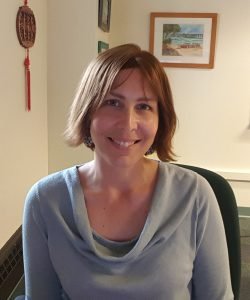 My general research interests are to study mechanisms that underlie molecular and structural dendritic alterations, seizures, and behavioral deficits in epilepsy. Epilepsy is a neurological disorder characterized by the occurrence of spontaneous recurrent seizures. In addition, epilepsy is highly co-morbid with cognitive and behavioral deficits along with catastrophic consequences such as sudden unexpected death. Unfortunately, anti-epileptic medications do not suppress seizures in one-third of the epileptic population. Therefore, our research goal is to identify potential therapeutic targets for the prevention, treatment, and control of this neurological disorder. Through our scientific discoveries we seek to help stop seizures and improve cognitive outcomes in those affected by severe epilepsy. Our research goal is to identify whether neuro-immune interactions contribute to the construction of hyperexcitable neuronal networks that may promote seizures and cognitive deficits in epilepsy. We seek to determine the role that microglial inflammatory and phagocytic signaling mediated by the classical complement cascade (C1q-C3), Triggering receptors expressed on myeloid cells (Trem2), Colony stimulating factor 1 receptor (CSFR1), and the mechanistic target of Rapamycin (mTOR), play in pathological synaptodendritic remodeling, seizures, and cognitive deficits in experimental models of epilepsy.
My general research interests are to study mechanisms that underlie molecular and structural dendritic alterations, seizures, and behavioral deficits in epilepsy. Epilepsy is a neurological disorder characterized by the occurrence of spontaneous recurrent seizures. In addition, epilepsy is highly co-morbid with cognitive and behavioral deficits along with catastrophic consequences such as sudden unexpected death. Unfortunately, anti-epileptic medications do not suppress seizures in one-third of the epileptic population. Therefore, our research goal is to identify potential therapeutic targets for the prevention, treatment, and control of this neurological disorder. Through our scientific discoveries we seek to help stop seizures and improve cognitive outcomes in those affected by severe epilepsy. Our research goal is to identify whether neuro-immune interactions contribute to the construction of hyperexcitable neuronal networks that may promote seizures and cognitive deficits in epilepsy. We seek to determine the role that microglial inflammatory and phagocytic signaling mediated by the classical complement cascade (C1q-C3), Triggering receptors expressed on myeloid cells (Trem2), Colony stimulating factor 1 receptor (CSFR1), and the mechanistic target of Rapamycin (mTOR), play in pathological synaptodendritic remodeling, seizures, and cognitive deficits in experimental models of epilepsy.David R. Soto-Pantoja (class of 2018)
Associate Professor, Hypertension
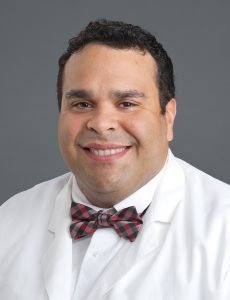 David Soto-Pantoja, PhD, investigates cell surface receptor CD47 as an immunotherapy for Dr. Soto-Pantoja received his BS in Biology from the University of Puerto Rico Mayagüez Campus and his PhD in in Molecular Genetics & Genomics from Wake Forest School of Medicine. Supported by DOD predoctoral grant and mentored by Drs. Ann Tallant and Patricia Gallagher, Dr. Pantoja investigated the role of the Renin Angiotensin System in cancer, which served as a basis to launch clinical trials at Wake Forest Comprehensive Cancer Center. He completed a post-doctoral research fellowship with Dr. David D. Roberts in the Laboratory of Pathology of the NCI, NIH funded by a Cancer Research Fellow Training Award where he devoted his efforts in understanding the role of CD47 signaling in cellular stress and as a target for cancer therapy. After his training he received the NCI Transition Career Development Award-K22 and began his independent career as an Assistant Professor at Wake Forest University School of Medicine. The research in his lab focuses on mechanisms to prevent chemotherapy-related cardiovascular toxicities as well as studies examining CD47 as an immunotherapy target in cancer. Dr. Pantoja’s research program serves as a platform to mentor students from diverse levels and backgrounds so they can continue to pursue careers in science.
David Soto-Pantoja, PhD, investigates cell surface receptor CD47 as an immunotherapy for Dr. Soto-Pantoja received his BS in Biology from the University of Puerto Rico Mayagüez Campus and his PhD in in Molecular Genetics & Genomics from Wake Forest School of Medicine. Supported by DOD predoctoral grant and mentored by Drs. Ann Tallant and Patricia Gallagher, Dr. Pantoja investigated the role of the Renin Angiotensin System in cancer, which served as a basis to launch clinical trials at Wake Forest Comprehensive Cancer Center. He completed a post-doctoral research fellowship with Dr. David D. Roberts in the Laboratory of Pathology of the NCI, NIH funded by a Cancer Research Fellow Training Award where he devoted his efforts in understanding the role of CD47 signaling in cellular stress and as a target for cancer therapy. After his training he received the NCI Transition Career Development Award-K22 and began his independent career as an Assistant Professor at Wake Forest University School of Medicine. The research in his lab focuses on mechanisms to prevent chemotherapy-related cardiovascular toxicities as well as studies examining CD47 as an immunotherapy target in cancer. Dr. Pantoja’s research program serves as a platform to mentor students from diverse levels and backgrounds so they can continue to pursue careers in science.Andres Contreras (class of 2017)
Associate Professor, Michigan State University
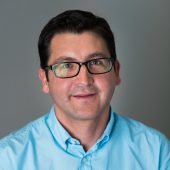 The Contreras Laboratory researches dairy cows, adipose tissue, mastitis, inflammation, fatty acids, and lactation. Andres Contreras, DVM, PhD, is studying adipose tissue biology with special emphasis on the effects of lipolysis and other fat tissue adaptation mechanisms associated with negative energy balance and the onset of lactation on host immunity and disease susceptibility, the development and adequate implementation of health solutions, and new technologies and applications that improve periparturient dairy cow health while increasing farmers' profitability.
The Contreras Laboratory researches dairy cows, adipose tissue, mastitis, inflammation, fatty acids, and lactation. Andres Contreras, DVM, PhD, is studying adipose tissue biology with special emphasis on the effects of lipolysis and other fat tissue adaptation mechanisms associated with negative energy balance and the onset of lactation on host immunity and disease susceptibility, the development and adequate implementation of health solutions, and new technologies and applications that improve periparturient dairy cow health while increasing farmers' profitability.Paola Giusti-Rodríguez (class of 2017)
Assistant Professor, McKnight Brain Institute, Department of Psychiatry, University of Florida
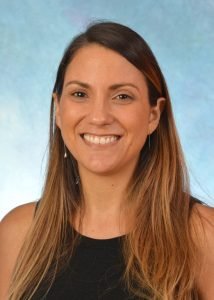 Dr. Paola Giusti-Rodriguez grew up in San Juan, Puerto Rico, where she earned a BS in Biology at the University of Puerto Rico-Rio Piedras. She completed her PhD in Cell and Developmental Biology at Harvard University, where her doctorate research focused on studying the molecular basis of neurodegeneration. She carried out her postdoctoral research with Dr. Patrick Sullivan at the University of North Carolina at Chapel Hill, where she employed the multi-parental Collaborative Cross mouse population to better understand antipsychotic side effects. Her work lies at the intersection between neuroscience and functional genomics, and she aims to integrate the tools and techniques of these fields to shed light on the genetics of neuropsychiatric disorders. In 2016, she was awarded a K01 Mentored Research Scientist Development Award by the National Institute of Mental Health for her work focused on functional genomics of psychiatric disorders. Dr. Giusti-Rodriguez is co-founder of the Latin American Genomics Consortium, which seeks to increase the representation of research participants from Latinx admixed ancestry in genetic studies on psychiatric disorders.
Dr. Paola Giusti-Rodriguez grew up in San Juan, Puerto Rico, where she earned a BS in Biology at the University of Puerto Rico-Rio Piedras. She completed her PhD in Cell and Developmental Biology at Harvard University, where her doctorate research focused on studying the molecular basis of neurodegeneration. She carried out her postdoctoral research with Dr. Patrick Sullivan at the University of North Carolina at Chapel Hill, where she employed the multi-parental Collaborative Cross mouse population to better understand antipsychotic side effects. Her work lies at the intersection between neuroscience and functional genomics, and she aims to integrate the tools and techniques of these fields to shed light on the genetics of neuropsychiatric disorders. In 2016, she was awarded a K01 Mentored Research Scientist Development Award by the National Institute of Mental Health for her work focused on functional genomics of psychiatric disorders. Dr. Giusti-Rodriguez is co-founder of the Latin American Genomics Consortium, which seeks to increase the representation of research participants from Latinx admixed ancestry in genetic studies on psychiatric disorders.Dr. Giusti-Rodriguez currently works in the Adult Research Division and will conduct research in genetic psychiatric illnesses, with interest in human-based studies of neurodevelopmental disorders (including ASD and schizophrenia), at the UF Center for OCD, Anxiety and Related Disorders (COARD). In addition, she serves as an important academic teacher and mentor for medical students, interns, training residents and promoting the research and educational mission of the McKnight Brain Institute (MBI) for Department of Psychiatry.
Veronica A. Segarra (class of 2017)
Assistant Professor, High Point University
 Our research investigates the membrane trafficking events that enable the cell to adapt to conditions of stress and starvation, particularly examining the cellular compartments and proteins responsible for transporting critical lipid membranes and membrane-associated proteins within the cell. We use baker’s yeast to investigate new pathways and to identify the specific cargo molecules, like proteins, that move along them. This involves genetic manipulation of yeast and observation of fluorescent cargo proteins trafficking throughout the cell.
Our research investigates the membrane trafficking events that enable the cell to adapt to conditions of stress and starvation, particularly examining the cellular compartments and proteins responsible for transporting critical lipid membranes and membrane-associated proteins within the cell. We use baker’s yeast to investigate new pathways and to identify the specific cargo molecules, like proteins, that move along them. This involves genetic manipulation of yeast and observation of fluorescent cargo proteins trafficking throughout the cell.
Lindsey S. Treviño (class of 2016)
Assistant Professor, Division of Health Equities, Department of Population Sciences
 Dr. Treviño’s research is focused on understanding the molecular basis by which exposure to endocrine disrupting chemicals disrupts the epigenetic machinery to promote the development of metabolic diseases with known disparities such as cancer, obesity and diabetes. Understanding the molecular mechanisms underlying epigenetic reprogramming may provide potential prevention strategies (for outreach and policy changes) and/or therapeutic targets for precision medicine approaches in high-risk populations.
Dr. Treviño’s research is focused on understanding the molecular basis by which exposure to endocrine disrupting chemicals disrupts the epigenetic machinery to promote the development of metabolic diseases with known disparities such as cancer, obesity and diabetes. Understanding the molecular mechanisms underlying epigenetic reprogramming may provide potential prevention strategies (for outreach and policy changes) and/or therapeutic targets for precision medicine approaches in high-risk populations.
Michael J. Coronado (class of 2016)
Scientist III, Cytokinetics
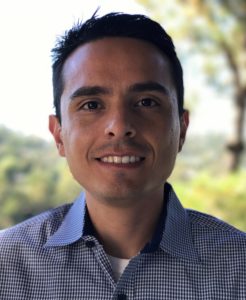 Michael Coronado is Research Scientist III in the Discovery Biology department at Cytokinetics with a specialty in cardiac physiology, mitochondrial biology, and sex differences. His major research interests are: (1) identify how the heart creates energy under healthy (e.g., exercise) vs. pathological (e.g., inflammation) conditions and (2) determine the role of sex differences in bioenergetic processes that modulate disease susceptibility. Coronado has expertise in cell and murine models and methodologies that assess mitochondrial function, morphology and signaling.
Michael Coronado is Research Scientist III in the Discovery Biology department at Cytokinetics with a specialty in cardiac physiology, mitochondrial biology, and sex differences. His major research interests are: (1) identify how the heart creates energy under healthy (e.g., exercise) vs. pathological (e.g., inflammation) conditions and (2) determine the role of sex differences in bioenergetic processes that modulate disease susceptibility. Coronado has expertise in cell and murine models and methodologies that assess mitochondrial function, morphology and signaling.
Dennis Montoya (class of 2016)
Assistant Researcher at the UC Davis School of Medicine
Dennis Montoya is a computational biologist currently serving as an Assistant Researcher at the UC Davis School of Medicine. His research focuses on developing methods to parse the tissue cellular microenvironment through analysis of genomic, transcriptomic, and epigenomic data. He has developed a suite of computational tools for the estimation of cellular frequency or immune activation pathways from whole tissue functional genomic data. His computational tools have been used in many settings, in particular for biomarker discovery from observational research studies. He is currently focusing on novel diagnostics and therapies for ovarian cancer.
Rafael E. Luna (class of 2015)
Associate Dean, Junior Class Director, Pre-Health Program Director, Gateway Scholars Program in STEM
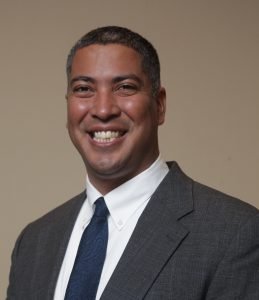 Rafael E. Luna, Ph.D., serves three leadership roles at Boston College: 1.) Associate Dean in the Morrissey College of Arts and Sciences, 2.) Director of the Pre-Health Program, and 3.) Director of the Gateway Scholars Program for STEM, which provides advising to 1st generation and underrepresented minority students to inspire them to continue in STEM fields.
Rafael E. Luna, Ph.D., serves three leadership roles at Boston College: 1.) Associate Dean in the Morrissey College of Arts and Sciences, 2.) Director of the Pre-Health Program, and 3.) Director of the Gateway Scholars Program for STEM, which provides advising to 1st generation and underrepresented minority students to inspire them to continue in STEM fields. Dr. Luna earned his bachelor’s degree in Biological Sciences from Southern University (Historically Black College and University) in Baton Rouge, Louisiana. During his junior year at Southern, he was one of six individuals selected from a nationwide competition to participate in the inaugural Biomedical Research Training Program at the National Heart Lung and Blood Institute at NIH, which ignited a passion for biomedical research. Dr. Luna thoroughly enjoyed his biomedical research experience, as he subsequently earned his doctorate in Biological Sciences at LSU.
Dr. Luna performed his postdoctorate research at Harvard Medical School, which centered on elucidating the sequence of protein-protein interactions leading to the decoding of the initial start codons of messenger RNAs. Dr. Luna held the position of Instructor in the Department of Biological Chemistry and Molecular Pharmacology at Harvard Medical School. He also held the role as Program Director for Senior Faculty Promotions in the Office for Faculty Affairs at Harvard Medical School. As the previous Executive Director of the National Research Mentoring Network (NRMN) and the former Principal Investigator of the Administrative Core of NRMN located at Boston College, Dr. Rafael E. Luna utilized data analytics to strategically grow NRMN and effectively reach all 50 states, including Hawaii, Alaska & Puerto Rico.
In addition to serving as a leader in higher education, Dr. Luna is the author of the book, The Art of Scientific Storytelling, which provides a narrative roadmap for scientists publishing in peer-review journals. He is a dynamic speaker and has taught his Scientific Storytelling method throughout the United States, Europe and Asia, e.g. Harvard Medical School, Harvard University, Massachusetts Institute of Technology, MIT-Koch Institute for Integrative Cancer, Wyss Institute at Harvard, Harvard University, Children’s Hospital-Boston, Brigham & Women’s Hospital, Boston University Medical School, Dana- Farber Cancer Institute, University of Bergen (Norway), Saarland University (Germany), University of Graz (Austria), University College of London (England), Beijing (China) and many more.
Diana M. Cittelly (class of 2015)
Assistant Professor, Breast Cancer Research Pathology, University of Colorado Anschutz Medical Campus
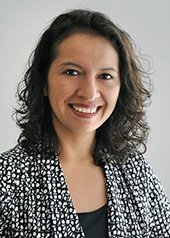 The Cittelly laboratory studies the mechanisms that allow breast cancer cells to metastasize to the brain, with long-term goal of identifying alternative treatment options for women with this -often terminal- diagnosis. Different from lung and bone metastases (which are common sites of breast cancer metastases), brain metastases develop in a unique organ comprised by a very specialized groups of cells that control brain function in a tightly regulated manner. We are interested in defining the mechanisms by which glial cells (reactive astrocytes and microglia) play pro and anti-metastatic roles during brain colonization, defining how hormones alter the neuro inflammatory milieu through metastatic colonization, and how the brain niche contributes to failure of standard of care for brain metastasis (i.e Radiation, targeted therapies).
The Cittelly laboratory studies the mechanisms that allow breast cancer cells to metastasize to the brain, with long-term goal of identifying alternative treatment options for women with this -often terminal- diagnosis. Different from lung and bone metastases (which are common sites of breast cancer metastases), brain metastases develop in a unique organ comprised by a very specialized groups of cells that control brain function in a tightly regulated manner. We are interested in defining the mechanisms by which glial cells (reactive astrocytes and microglia) play pro and anti-metastatic roles during brain colonization, defining how hormones alter the neuro inflammatory milieu through metastatic colonization, and how the brain niche contributes to failure of standard of care for brain metastasis (i.e Radiation, targeted therapies).Renata Pereira Alambert (class of 2015)
Assistant Professor, Internal Medicine, University of Iowa Carver College of Medicine
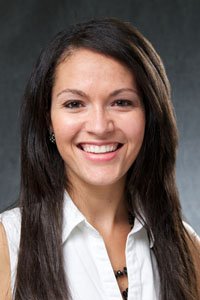 Diabetes is one of the fastest growing epidemics nationwide, and its complications remain a major public health burden. Insulin resistance is a hallmark of type 2 diabetes and obesity, and elucidating its pathophysiology will be crucial to combat diabetes. Several studies have correlated mitochondrial dysfunction with insulin resistance and diabetes. However, whether impaired mitochondrial function plays a casual role or is secondary to the disease is still incompletely understood. My current research focuses on elucidating the link between the role of mitochondrial fusion and fission (mitochondrial dynamics) on metabolically relevant tissues on the manifestation of insulin resistance. I have recently demonstrated that, by deleting the fusion protein OPA1 from skeletal muscle we induce mitochondrial stress and ER stress, but surprisingly renderer mice resistant to diet-induced obesity and insulin resistance via FGF21 secretion from muscle. My current research projects aim to understand the mechanisms for muscle regulation of FGF21 and the role of OPA1 and mitochondrial dynamics in adipose tissue physiology and in the adaptation to caloric excess.
Diabetes is one of the fastest growing epidemics nationwide, and its complications remain a major public health burden. Insulin resistance is a hallmark of type 2 diabetes and obesity, and elucidating its pathophysiology will be crucial to combat diabetes. Several studies have correlated mitochondrial dysfunction with insulin resistance and diabetes. However, whether impaired mitochondrial function plays a casual role or is secondary to the disease is still incompletely understood. My current research focuses on elucidating the link between the role of mitochondrial fusion and fission (mitochondrial dynamics) on metabolically relevant tissues on the manifestation of insulin resistance. I have recently demonstrated that, by deleting the fusion protein OPA1 from skeletal muscle we induce mitochondrial stress and ER stress, but surprisingly renderer mice resistant to diet-induced obesity and insulin resistance via FGF21 secretion from muscle. My current research projects aim to understand the mechanisms for muscle regulation of FGF21 and the role of OPA1 and mitochondrial dynamics in adipose tissue physiology and in the adaptation to caloric excess.Vinicio de Jesus Perez (class of 2014)
Associate Professor of Medicine, Stanford University Medical Center
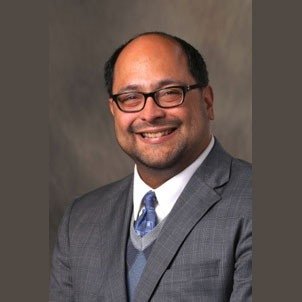 Our lab focuses on understanding the genetic, cellular and molecular mechanisms involved in the pathogenesis of pulmonary arterial hypertension (PAH). We are interested in understanding how pulmonary arteries respond to injury and identify novel genetic modifiers whose dysfunction can trigger small vessel loss and vascular remodeling in PAH patients. In particular, we are currently focused on exploring how the Wnt signaling pathways regulate the behavior of pulmonary artery endothelial cells (PAECs), smooth muscle cells (PASMCs) and pericytes in response to injury and whether mutations related to these pathway can affect signaling via other pathways relevant to PAH resulting in development of clinical disease. The overarching goal of our work is to identify potential biomarkers and drug targets that can be used in the development of novel diagnostic and treatment approaches to offer patients afflicted with this devastating disease. In recent years, our lab has broadened its research interests to include other rare pulmonary diseases such as idiopathic lung fibrosis and lymphangioleiomyomatosis (LAM). We are testing novel approaches to prevent and reverse disease progression in animal models of these diseases with the goal of discovering novel therapies to alter the natural course of these life-threatening diseases.
Our lab focuses on understanding the genetic, cellular and molecular mechanisms involved in the pathogenesis of pulmonary arterial hypertension (PAH). We are interested in understanding how pulmonary arteries respond to injury and identify novel genetic modifiers whose dysfunction can trigger small vessel loss and vascular remodeling in PAH patients. In particular, we are currently focused on exploring how the Wnt signaling pathways regulate the behavior of pulmonary artery endothelial cells (PAECs), smooth muscle cells (PASMCs) and pericytes in response to injury and whether mutations related to these pathway can affect signaling via other pathways relevant to PAH resulting in development of clinical disease. The overarching goal of our work is to identify potential biomarkers and drug targets that can be used in the development of novel diagnostic and treatment approaches to offer patients afflicted with this devastating disease. In recent years, our lab has broadened its research interests to include other rare pulmonary diseases such as idiopathic lung fibrosis and lymphangioleiomyomatosis (LAM). We are testing novel approaches to prevent and reverse disease progression in animal models of these diseases with the goal of discovering novel therapies to alter the natural course of these life-threatening diseases.Sharilyn Almodovar (class of 2013)
Assistant Professor, Texas Tech University Health Sciences Center
 Throughout the years, Dr. Almodovar has investigated Human Immunodeficiency Virus (HIV) and its involvement in pulmonary vascular diseases like Pulmonary Hypertension. Pulmonary Hypertension (PH) is a long-term complication of HIV infection and is a cause of mortality unrelated to AIDS. What in HIV causes or contributes to PH was –and still remains- largely unknown. As a postdoctoral fellow in Colorado, Dr. Almodovar contributed her experience in molecular virology and bioinformatics to uncover specific HIV Nef polymorphisms associated with the pulmonary hypertensive phenotype in HIV-infected individuals. In addition, her work helped to confirm the utility of SHIVnef-infected macaques as suitable models of HIV-associated pulmonary vascular remodeling, as the pathogenetic changes they observed are concordant with features of several forms of PH including idiopathic, familial, scleroderma-induced, and HIV-associated PH. Her research group then moved on to now investigate the role of CXCR4-utilizing HIV (X4 viruses) in pulmonary hypertension and pulmonary vascular disease, as well as using humanized mice as the next step to continue mechanistic studies here at TTUHSC.
Throughout the years, Dr. Almodovar has investigated Human Immunodeficiency Virus (HIV) and its involvement in pulmonary vascular diseases like Pulmonary Hypertension. Pulmonary Hypertension (PH) is a long-term complication of HIV infection and is a cause of mortality unrelated to AIDS. What in HIV causes or contributes to PH was –and still remains- largely unknown. As a postdoctoral fellow in Colorado, Dr. Almodovar contributed her experience in molecular virology and bioinformatics to uncover specific HIV Nef polymorphisms associated with the pulmonary hypertensive phenotype in HIV-infected individuals. In addition, her work helped to confirm the utility of SHIVnef-infected macaques as suitable models of HIV-associated pulmonary vascular remodeling, as the pathogenetic changes they observed are concordant with features of several forms of PH including idiopathic, familial, scleroderma-induced, and HIV-associated PH. Her research group then moved on to now investigate the role of CXCR4-utilizing HIV (X4 viruses) in pulmonary hypertension and pulmonary vascular disease, as well as using humanized mice as the next step to continue mechanistic studies here at TTUHSC.Joaquin N. Lugo (class of 2013)
Associate Professor of Psychology & Neuroscience, Graduate Program Director, Ph.D. Program, Baylor University
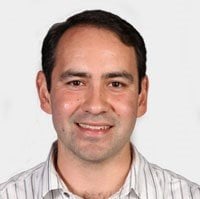 I investigate how seizures during different periods of neurodevelopment result in long-term changes in learning and memory, social behavior, and repetitive/stereotyped behaviors. I also investigate the neural mechanisms that mediate these changes through molecular and imaging techniques. In particular, I am examining how seizures induce changes in the mTOR, MAPK, and Canonical Wnt signaling pathways and how these changes lead to alterations in potassium channels and other synaptic proteins. My interest in examining behavioral changes is also why I am examining the link between autism and epilepsy. Children with epilepsy have a high comorbidity with autism but the underlying mechanism is not known. I plan to investigate how seizures could lead to autistic-like behavior in mice. My third research question is how seizures during early development impact brain growth and bone growth. We use genetic and chemoconvulant models of epilepsy and determine their bone phenotype in adulthood.
I investigate how seizures during different periods of neurodevelopment result in long-term changes in learning and memory, social behavior, and repetitive/stereotyped behaviors. I also investigate the neural mechanisms that mediate these changes through molecular and imaging techniques. In particular, I am examining how seizures induce changes in the mTOR, MAPK, and Canonical Wnt signaling pathways and how these changes lead to alterations in potassium channels and other synaptic proteins. My interest in examining behavioral changes is also why I am examining the link between autism and epilepsy. Children with epilepsy have a high comorbidity with autism but the underlying mechanism is not known. I plan to investigate how seizures could lead to autistic-like behavior in mice. My third research question is how seizures during early development impact brain growth and bone growth. We use genetic and chemoconvulant models of epilepsy and determine their bone phenotype in adulthood.Digna R. Velez Edwards (class of 2013)
Associate Professor of Obstetrics and Gynecology and Biomedical Informatics, Director of the Division of Quantitative Sciences in the Department of Obstetrics and Gynecology, Director of Women's Health Research center, Investigator of the Vanderbilt Genetics Institute, and member of the Vanderbilt Epidemiology Center, Vanderbilt University Medical Center
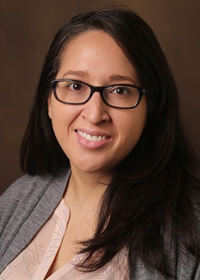 Dr. Velez Edwards is focused on understanding and identifying genetic risk factors for complex diseases with a specific focus on diseases that disproportionately impact minorities and genetic factors related to women's health and reproductive outcomes. She utilizes large clinical databases that link electronic health record (EHR) information to DNA and the Right from the Start cohort, a community-based prospective pregnancy cohort. Current research projects include genetic studies of preterm birth, miscarriage, uterine fibroids, pelvic organ prolapse, and keloids. These studies include genome-wide association analyses, next-generation sequencing, evaluation of biomarkers, and phenome-wide association studies.
Dr. Velez Edwards is focused on understanding and identifying genetic risk factors for complex diseases with a specific focus on diseases that disproportionately impact minorities and genetic factors related to women's health and reproductive outcomes. She utilizes large clinical databases that link electronic health record (EHR) information to DNA and the Right from the Start cohort, a community-based prospective pregnancy cohort. Current research projects include genetic studies of preterm birth, miscarriage, uterine fibroids, pelvic organ prolapse, and keloids. These studies include genome-wide association analyses, next-generation sequencing, evaluation of biomarkers, and phenome-wide association studies.
Magdia De Jesus (class of 2013)
Director of Scientific Strategy and Portfolio Lead at Pfizer’s Worldwide Medical Safety Division
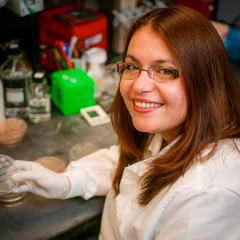 Dr. Magdia De Jesus is currently the Director of Scientific Strategy and Portfolio Lead at Pfizer’s Worldwide Medical Safety Division. In 2019, she joined Pfizer’s Vaccines Research and Development Division as a Senior Principal Scientist where she co-lead the meningococcal vaccines program. Prior to joining Pfizer, she was an Assistant Professor at the University at Albany, State University of New York, School of Public Health. As a principal investigator, her research program addressed gut immunity against fungal organisms, fungal derived vaccine delivery vehicles, and the development of animal models to understand immunity against the emerging fungal organism Candida auris. Dr. De Jesus has authored over 35 peer reviewed publications as well as several book chapters.
Dr. Magdia De Jesus is currently the Director of Scientific Strategy and Portfolio Lead at Pfizer’s Worldwide Medical Safety Division. In 2019, she joined Pfizer’s Vaccines Research and Development Division as a Senior Principal Scientist where she co-lead the meningococcal vaccines program. Prior to joining Pfizer, she was an Assistant Professor at the University at Albany, State University of New York, School of Public Health. As a principal investigator, her research program addressed gut immunity against fungal organisms, fungal derived vaccine delivery vehicles, and the development of animal models to understand immunity against the emerging fungal organism Candida auris. Dr. De Jesus has authored over 35 peer reviewed publications as well as several book chapters.Dr. De Jesus always acknowledges the many mentors throughout her educational and professional journey. She credits her career success because she is a product of pipeline mentorship. As a faculty member she developed “A scientist looks just like you” program to educate and inspire children in grades 3-12 to understand that they too can be scientists regardless of background or socioeconomic status. She also volunteers with the Rise High STEM program in the underserved community of Schenectady, New York . She is currently developing a STEM pipeline program for Pfizer that targets middle school and high school students.
Blythe Elena Janowiak (class of 2012)
Associate Professor of Biology, Saint Louis University
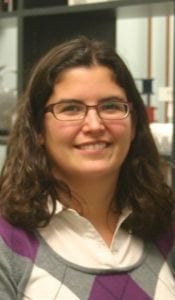 The Janowiak lab uses biochemistry, microbiology, and molecular genetics to explore the relationship between microbes and their environment. The lab has two main focuses: 1) Gram-positive pathogenic bacteria and their response to oxidative stresses produced by the mammalian host, and 2) The contribution of glutathione and other antioxidants to the survival and maintenance of bacteria residing in the mouse vaginal microbiome. Our bacterium of interest is Group B Streptococcus (Streptococcus agalactiae). Our favorite oxidative stress response is glutathione, and we specifically study its synthesis, import, export, and metabolism in the bacteria. To study the regulation of and the molecular mechanisms involved with glutathione metabolism, we are employing a combination of transcriptomics, metabolomics, and good old fashion biochemistry. The lab is examining the effect of glutathione metabolism on the biodiversity of the vaginal microbiota. Group B Streptococcus is often found in the healthy vaginal microbiome, but can become an opportunistic pathogen and cause significant disease. Therefore, the lab is interested in the role antioxidants, namely glutathione, play in maintaining a healthy vaginal microbiome.
The Janowiak lab uses biochemistry, microbiology, and molecular genetics to explore the relationship between microbes and their environment. The lab has two main focuses: 1) Gram-positive pathogenic bacteria and their response to oxidative stresses produced by the mammalian host, and 2) The contribution of glutathione and other antioxidants to the survival and maintenance of bacteria residing in the mouse vaginal microbiome. Our bacterium of interest is Group B Streptococcus (Streptococcus agalactiae). Our favorite oxidative stress response is glutathione, and we specifically study its synthesis, import, export, and metabolism in the bacteria. To study the regulation of and the molecular mechanisms involved with glutathione metabolism, we are employing a combination of transcriptomics, metabolomics, and good old fashion biochemistry. The lab is examining the effect of glutathione metabolism on the biodiversity of the vaginal microbiota. Group B Streptococcus is often found in the healthy vaginal microbiome, but can become an opportunistic pathogen and cause significant disease. Therefore, the lab is interested in the role antioxidants, namely glutathione, play in maintaining a healthy vaginal microbiome.Lydia M. Contreras (class of 2012)
Managing Director of Diversity, Associate Professor Diversity, Department of Chemical Engineering & Paul D. and Betty Robertson Meek Centennial Professorship in Chemical Engineering
 Our research combines biomolecular engineering, genetic studies and computational modeling to understand molecular features that lead to the specific recognition and interaction of regulatory RNAs and proteins. We apply fundamental concepts that emerge from experimental (and computational) work to develop novel applications that could beneficially impact human health and biotechnology. Overall research interests: *transcriptional regulation, *regulatory RNA networks, *epitranscriptomics, * RNA-protein interactions, RNA-protein folding * Novel molecular tools for intracellular studies of RNA-metabolism * * Diagnostics for RNA-related diseases * Molecular mechanisms of stress-responses
Our research combines biomolecular engineering, genetic studies and computational modeling to understand molecular features that lead to the specific recognition and interaction of regulatory RNAs and proteins. We apply fundamental concepts that emerge from experimental (and computational) work to develop novel applications that could beneficially impact human health and biotechnology. Overall research interests: *transcriptional regulation, *regulatory RNA networks, *epitranscriptomics, * RNA-protein interactions, RNA-protein folding * Novel molecular tools for intracellular studies of RNA-metabolism * * Diagnostics for RNA-related diseases * Molecular mechanisms of stress-responses
Jonathan Perez Deane (class of 2011)
Director of Immunology at Kumquat Biosciences Inc.
Jonathan Deane earned his B.S. and Ph.D. at the University of California, Irvine. His graduate student work was focused on the role of regulatory subunits of the lipid kinase PI3K in immune and leukemia function. At the NIAID, his postdoctoral fellowship was concentrated on the role of nucleic acid-sensing receptors in the innate immune system. Specifically, he focused on TLR7 and MDA5 to understand that expression levels of these molecules contributes to the development of autoimmune disease. As an investigator at the Genomics Institute of the Novartis Research Foundation, Jonathan spent over 10 years in drug discovery considering ways to apply basic research to making novel therapeutics. This led to the nomination of 3 clinical candidates including LHC165, an intratumoral TLR7 agonist. He also helped outlicense IOV-3001, a novel IL-2 biologic which is now being developed by Iovance. Since July 2020, Jonathan has been the Director of Immunology at Kumquat Biosciences, a startup company dedicated to developing novel therapeutics in the fields of oncology, immune oncology and immunology.
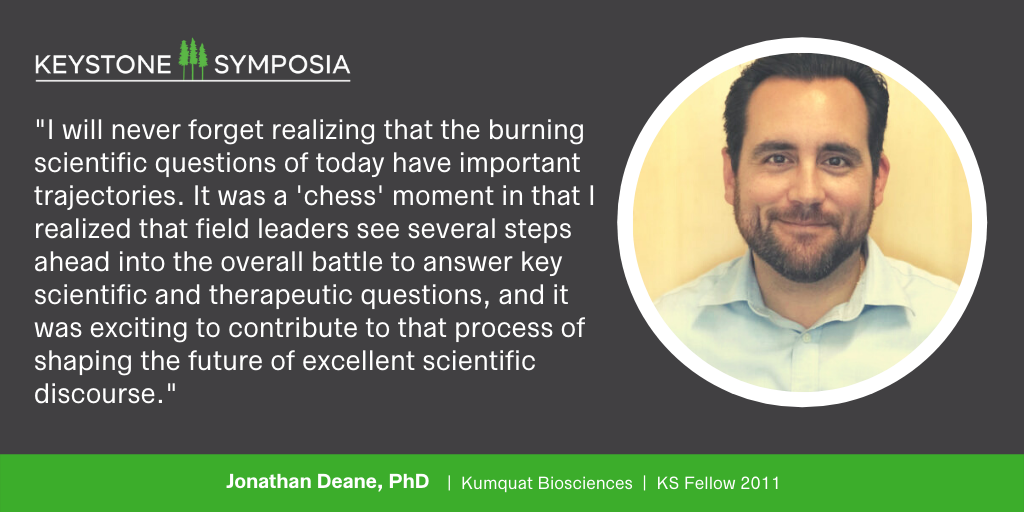
Fatima Rivas (class of 2010)
Assistant Professor, Louisiana State University
The Rivas group is interested in developing new chemical tools from natural products to tease out biological processes with the potential of treating human disease. Natural products chemistry is the study of substances produced by living organisms. We investigate them to improve our understanding of biological processes and identify compounds that may lead to the development of new therapeutic agents. We also develop derivatization strategies to discover new chemical matter. We used a variety of methods, such as bio-guided isolation, reactivity-guided labeling, and total syntheses, which provide access to novel natural products based on their bioactivity or reactivity. These approaches have the potential to uncover fascinating new chemical structures with profound insight into the vast chemical space of natural products and their capability to bring healing to human disease. One of our discoveries, the synthesis and biological evaluation of colletoic acid, a remarkable selective inhibitor of a metabolic enzyme that promotes adipose dysfunction. We are now studying ways to identify suitable delivery systems to test this compound and its derivatives in in vivo models.
These research endeavors promise to discover new natural products and identification of novel biological targets to further facilitate the development of the next generation of molecular probes to alleviate human disease.
In the summers she has enjoyed working with undergraduate students as part of NIH-funded programs. Wherever possible, Fatima has contributed voluntarily to teaching. She has been active in her communities, serving on NIH panels, organizing symposia at ACS meetings and participating in formal student mentoring programs.
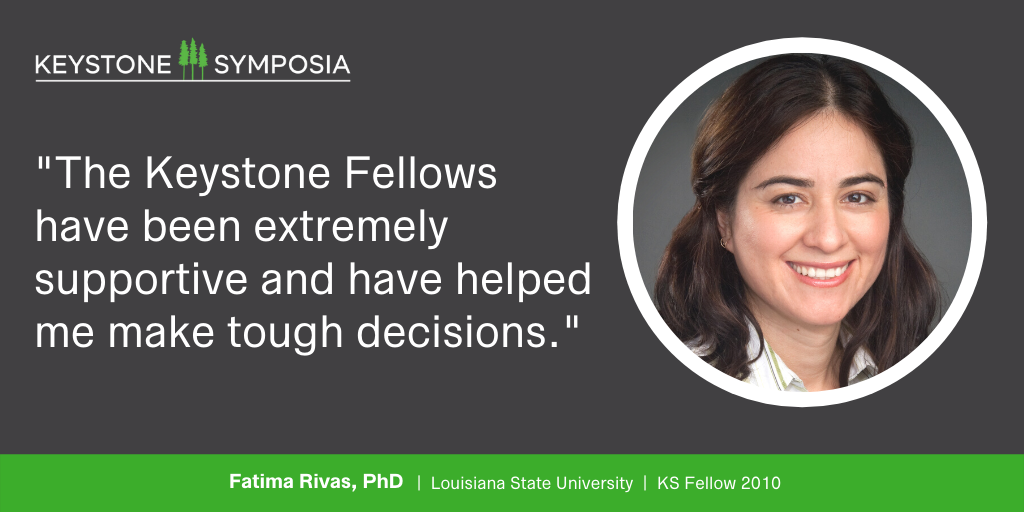
Dr. Crawford’s laboratory accesses large-scale epidemiologic and clinical data to characterize common and rare genetic variants associated with human diseases. A particular interest is in identifying pleiotropy (when a single gene or variant influences two or more seemingly unrelated traits) and environmental modifiers of genetic associations, including pharmacogenomics (the study of how genetic variants affect a person's response to drugs). She has played leading roles in NIH-funded consortia dedicated to developing the infrastructure for national studies emphasizing diversity and drawing from electronic health records integrated with genomics. Dr. Crawford promotes the cultivation of women and minorities in STEM education and research, recognizing that perspectives and findings from diverse studies can unlock why people with diverse genetic, behavioral, and environmental backgrounds can have varied risks for diseases and outcomes to interventions or treatments.
Related news
Organizer Insights into the Global Virome in Health & Disease Meeting
The microbiome, once overlooked for its complexity and essential role in dictating human (and...
